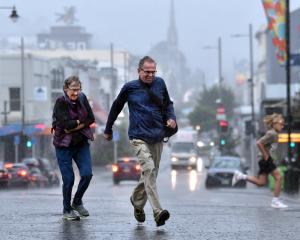
Trade Me reported on Monday that the median rent across Dunedin based on data from June, including tenancies which did not start until 2019, had increased by 6.3% to $361.50 a week.
OUSA student support manager Sage Burke said the association had been noticing climbing rents, which were something that often took up ''the majority of a student's income, with very little left over''.
The number of requests for help from the OUSA hardship fund was twice as high as in July 2017.
While rent was ''probably'' a factor, rising living costs across the board contributed.
Otago Polytechnic Students' Association student support adviser Lesley Scoullar said a rent rise was to be expected after the Government increased student loan and allowance entitlements.
In 2017, there was nearly a three-fold increase in the total number of emergency grants given out by OPSA from the previous year, and it was possible there would be a climb next year, as well.
''We are putting measures in place this year, supporting students in various ways and at schools with breakfasts, food available throughout the day,'' Mrs Scoullar said.
Otago Property Investors Association president Cliff Seque said on Monday there were a number of possible drivers behind Trade Me's reported rent increase, including rates increases.
Real Estate Institute of New Zealand regional spokeswoman Liz Nidd said earlier this week impending requirements under the Healthy Homes Guarantee Act were affecting the number of rental properties available in Dunedin and some investors were choosing to sell.
The Act, which comes into force next year, introduces requirements intended to ensure homes are warm and dry.
New tenancies have to comply with the requirements from July 2019, and all tenancies must comply by 2024.
Changes introduced in 2016 already require landlords to ensure that their rental properties meet minimum insulation requirements by July 2019.













